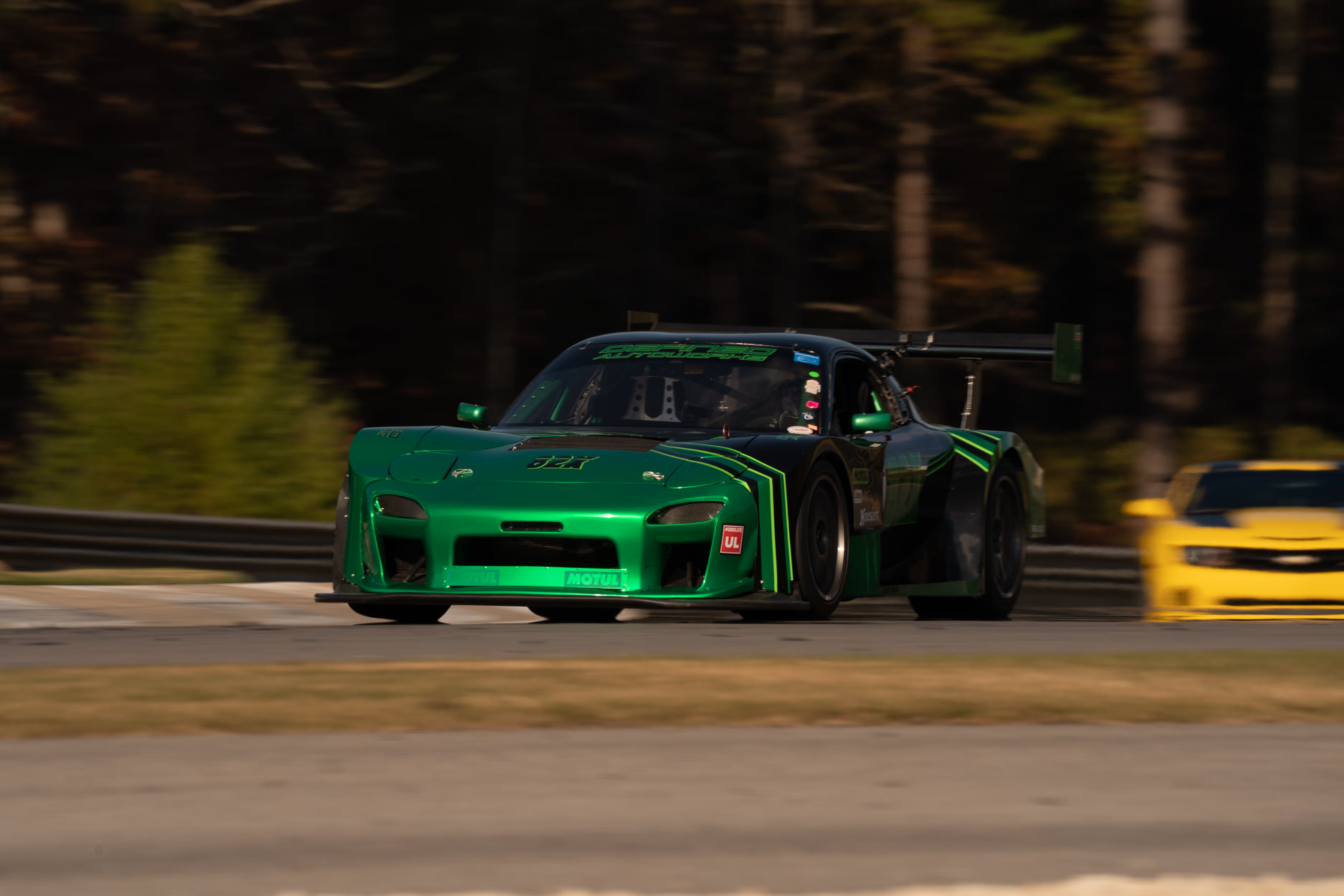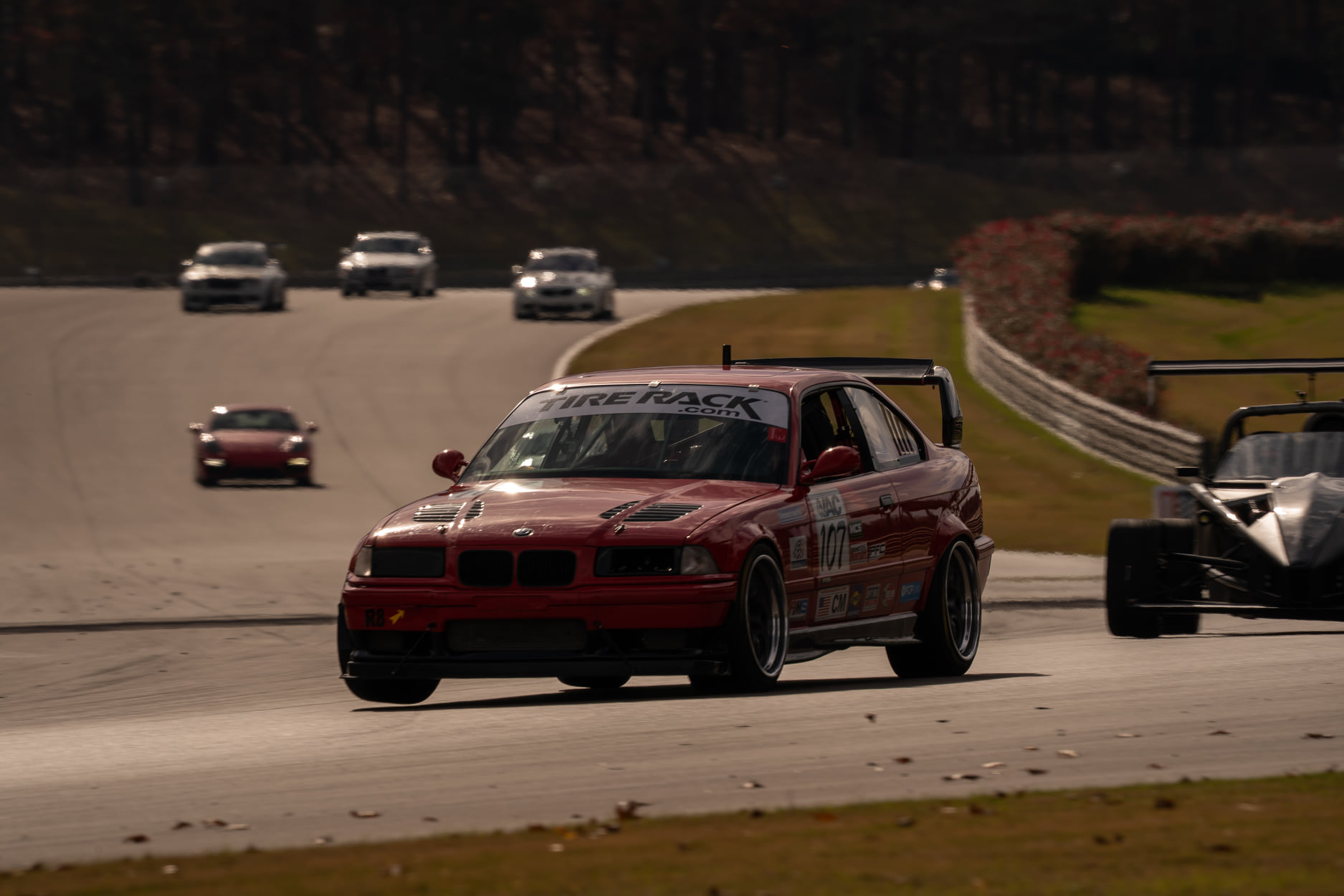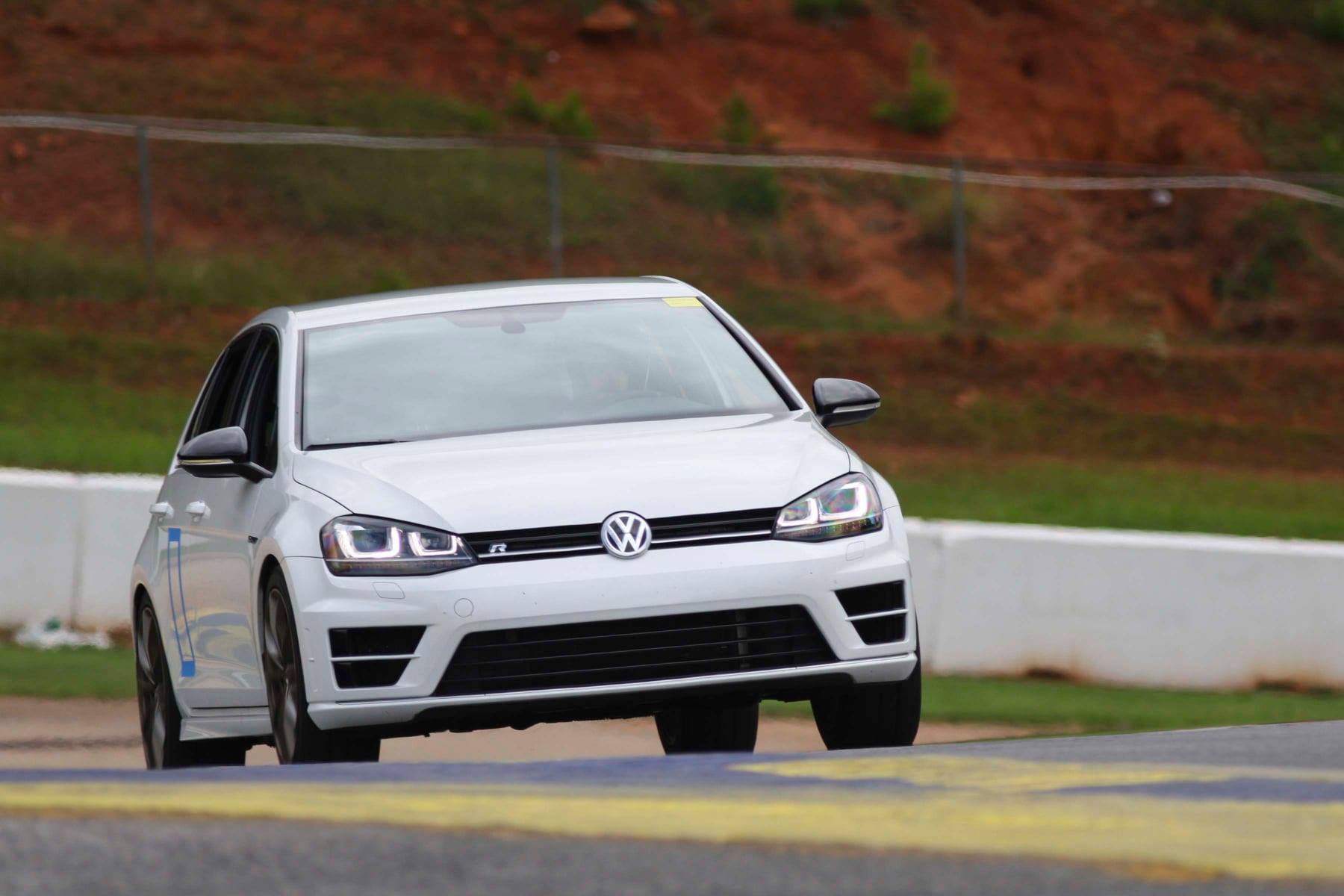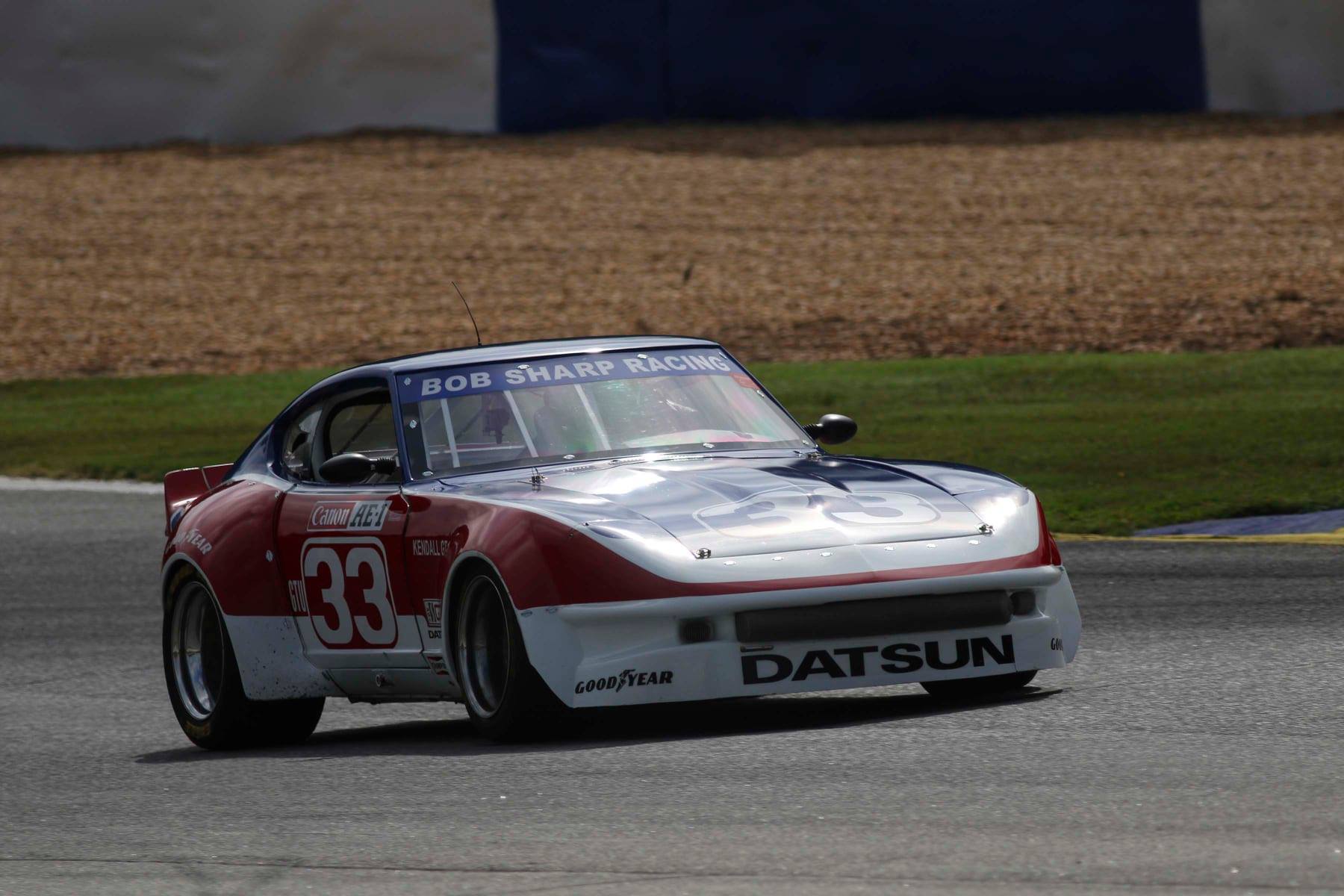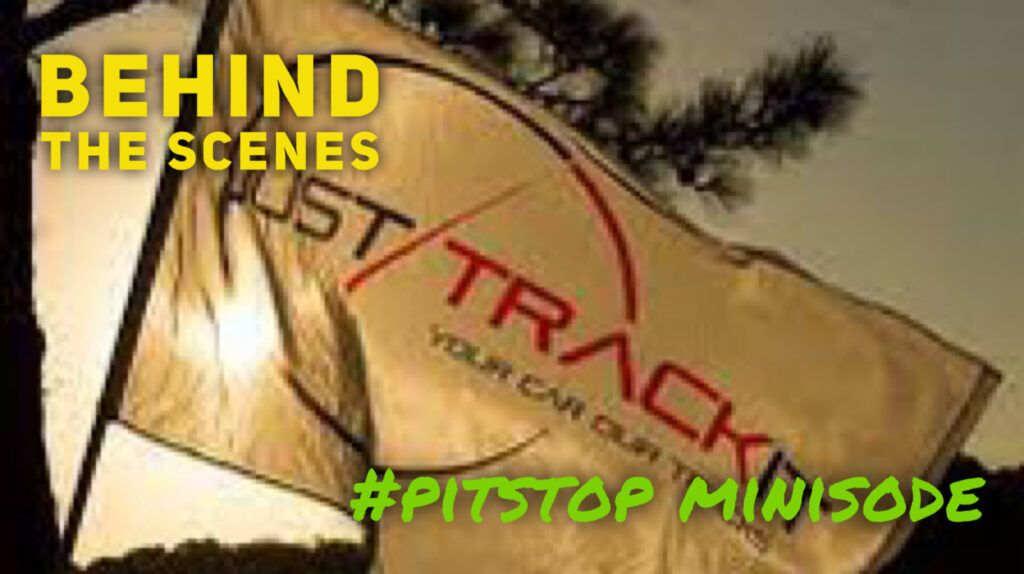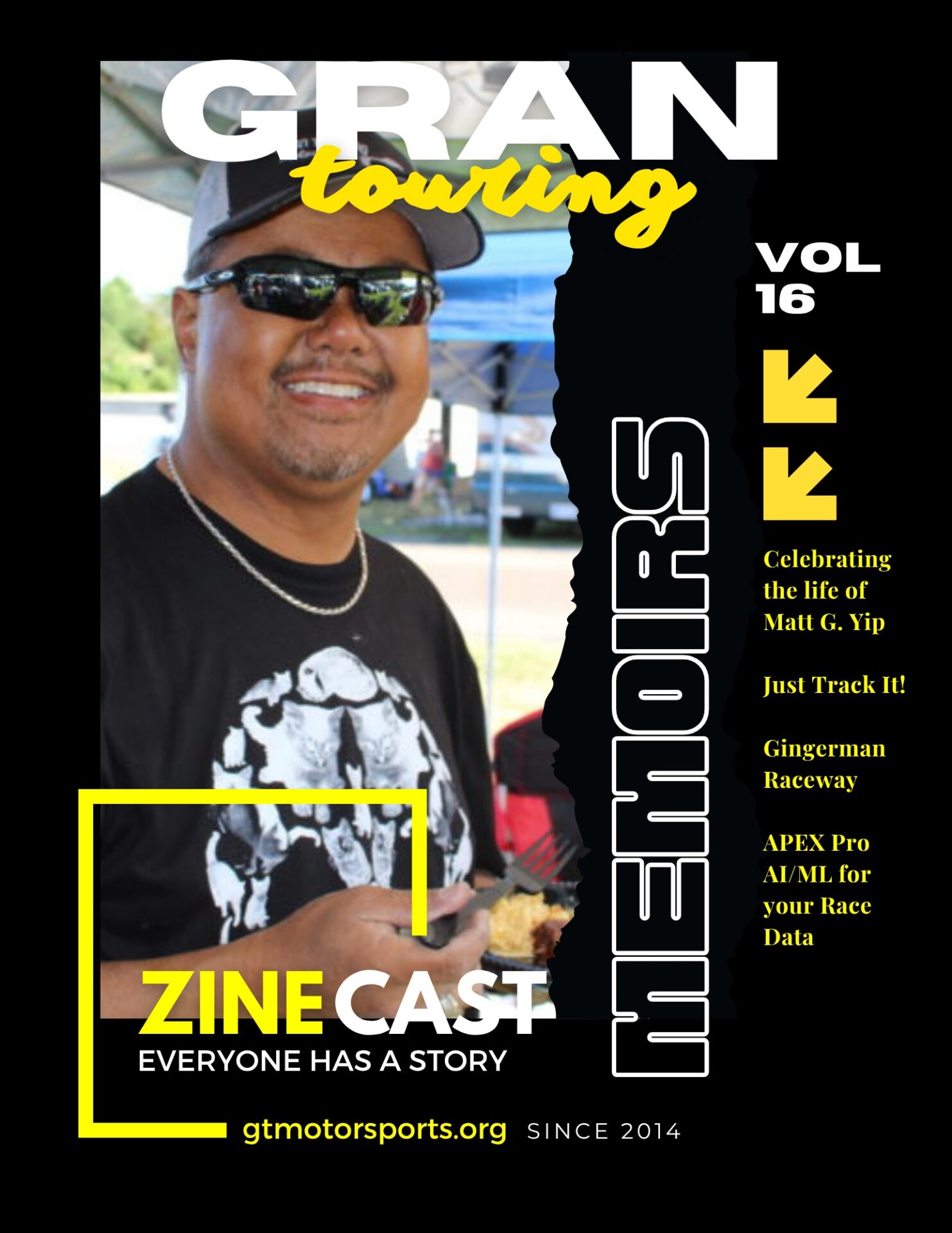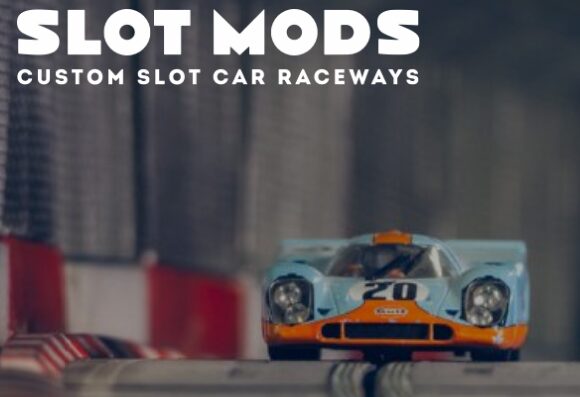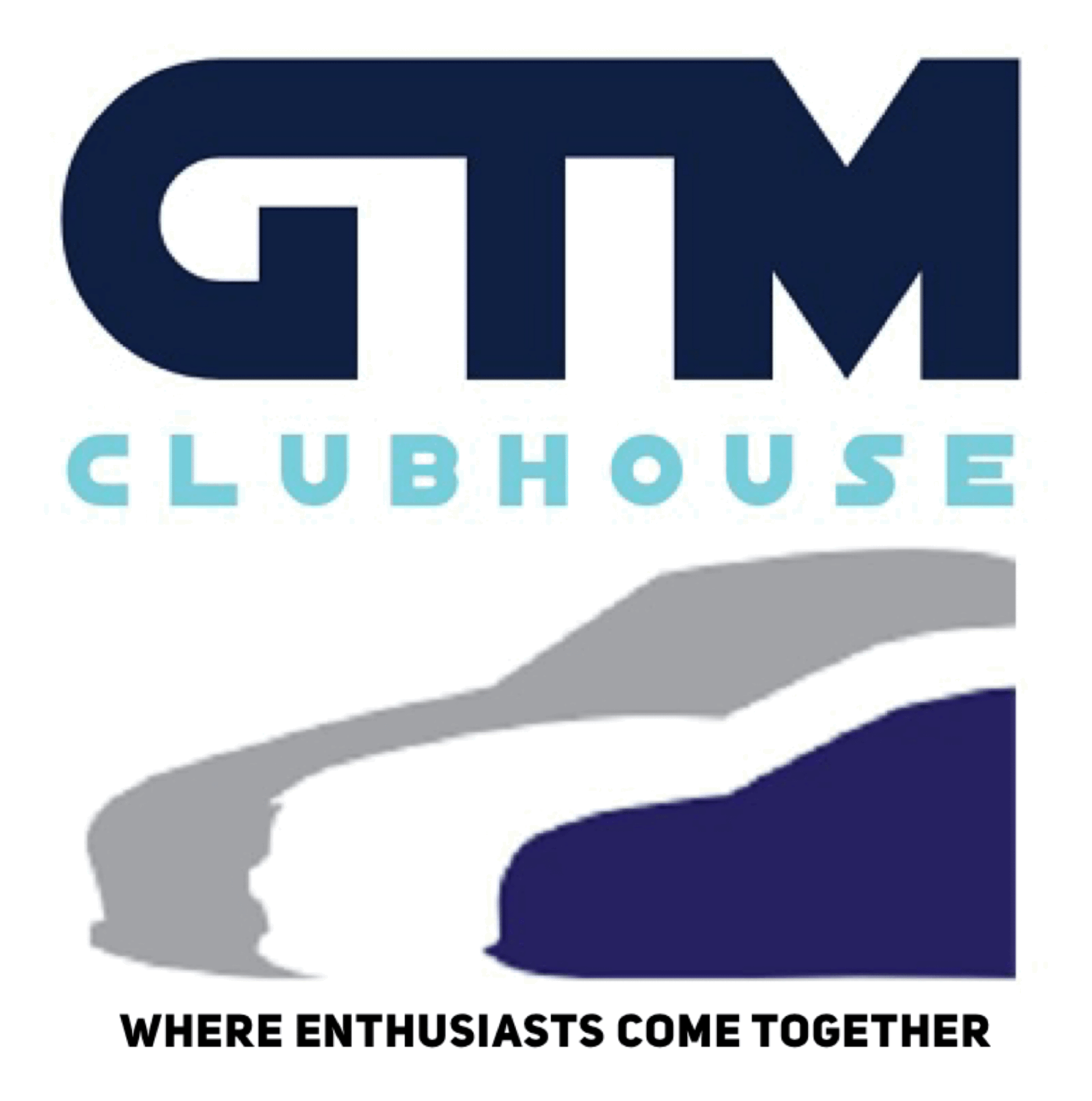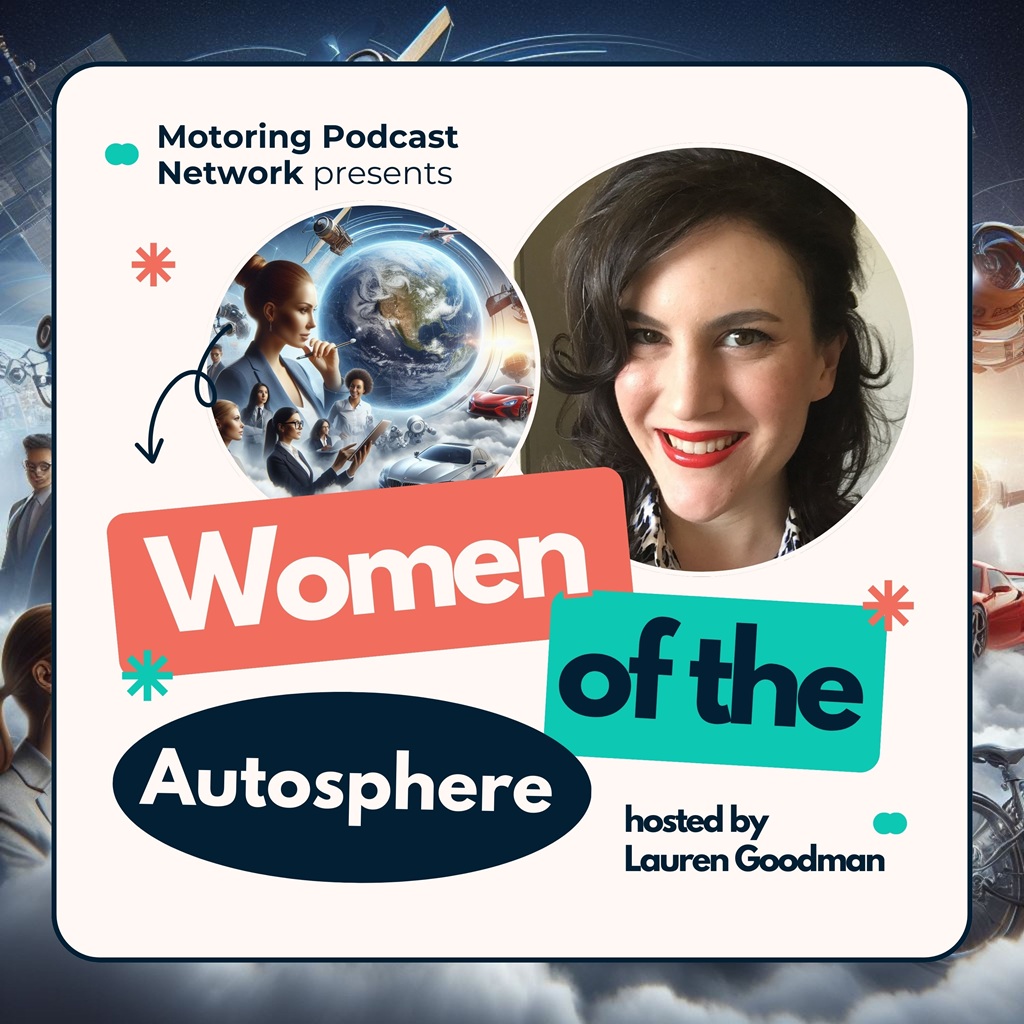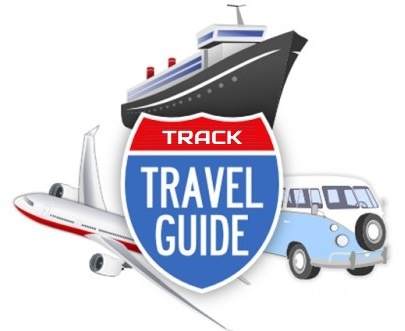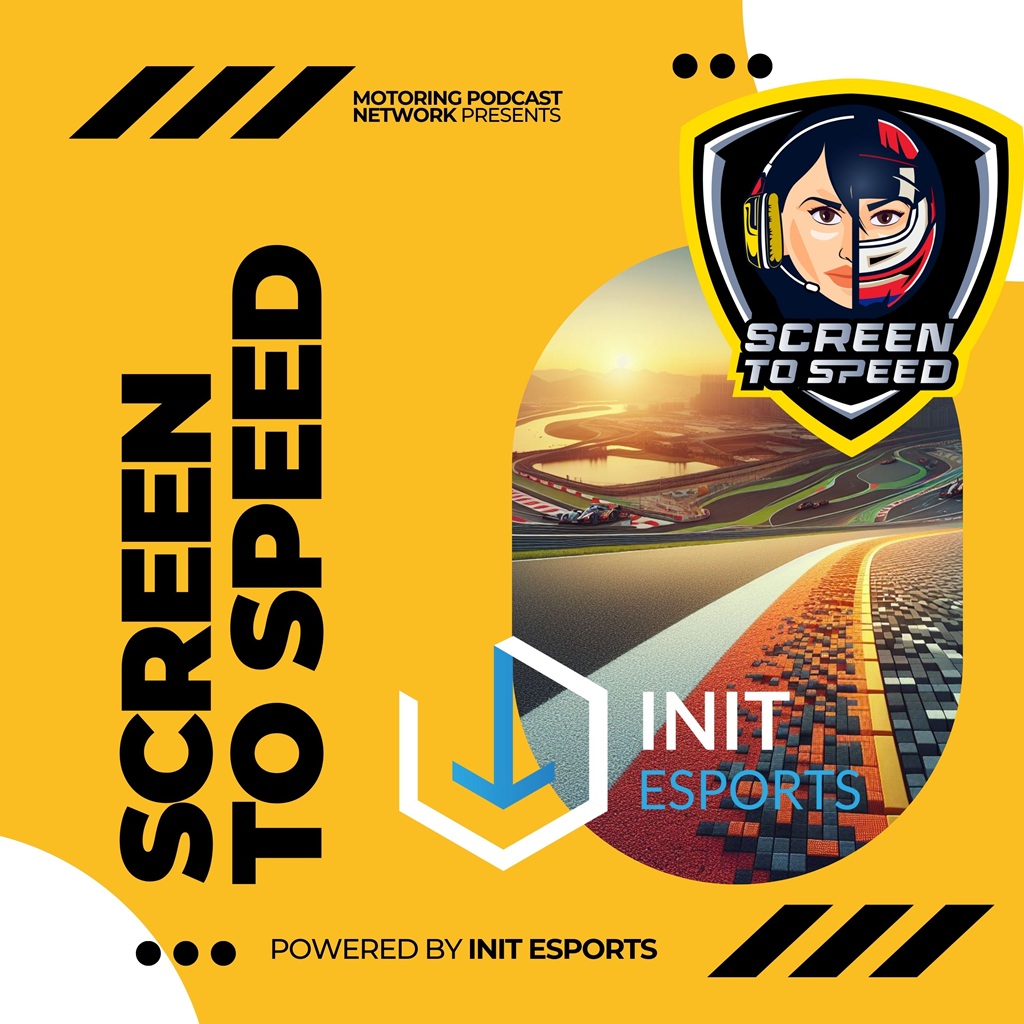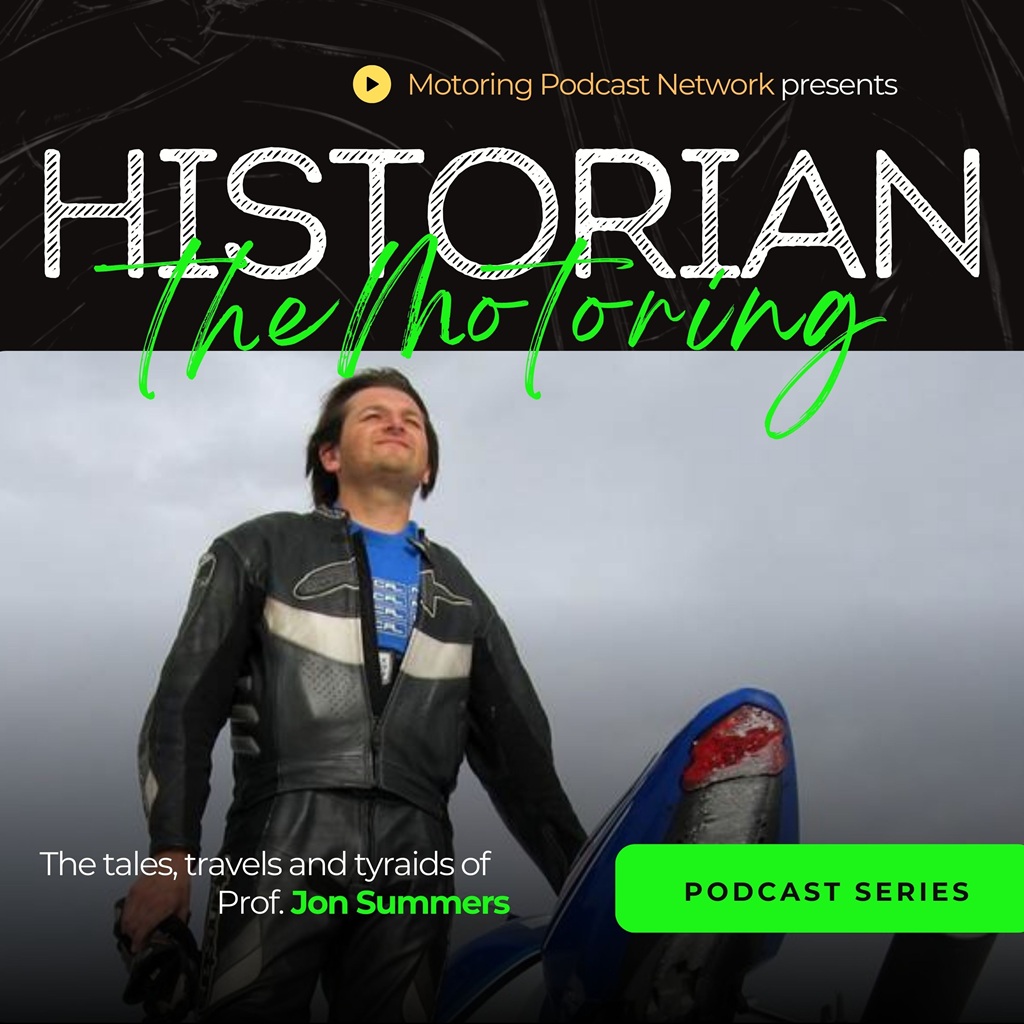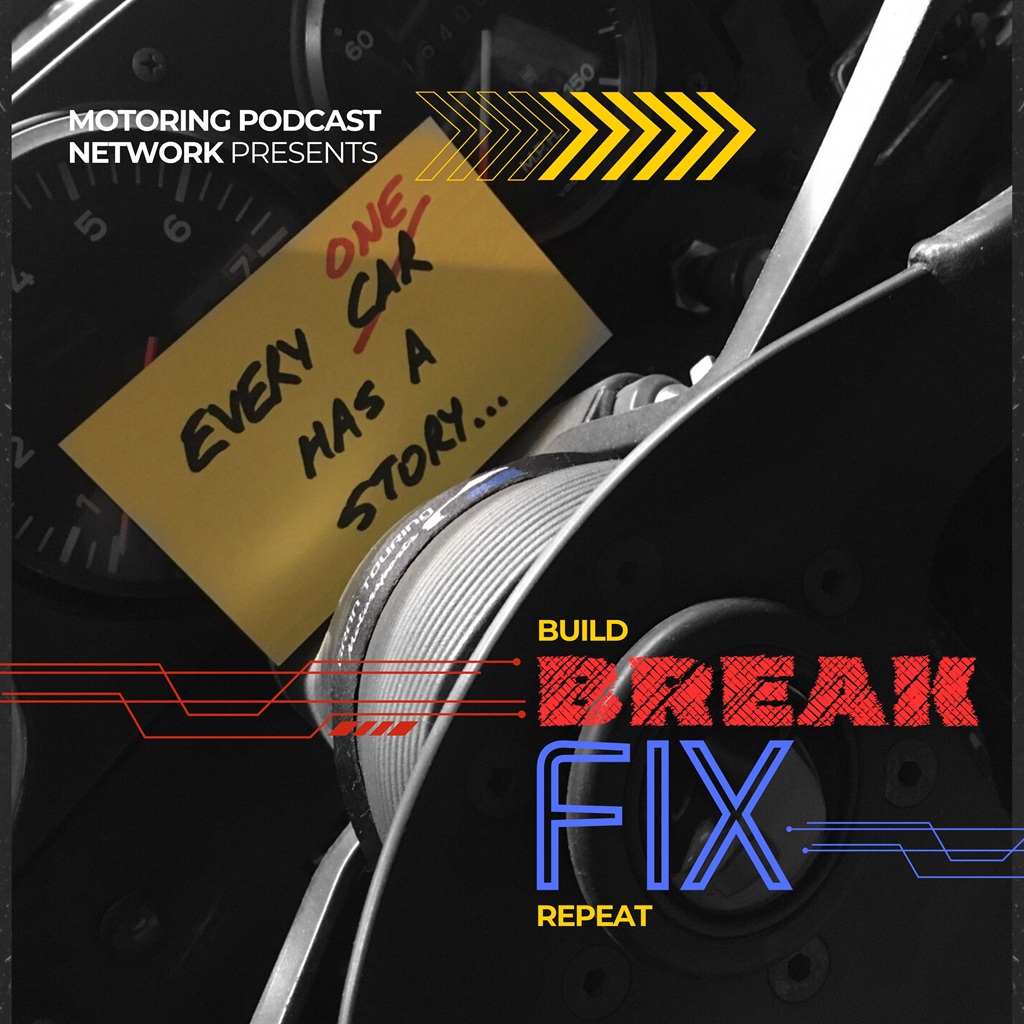Just Track It! was founded in 2013 to bring affordable track days to car enthusiasts around the Southeastern US. Their mission is to get you on track in your car for the lowest possible price allowing you to safely enjoy your car at its performance limits!
Just Track It’s open track events feature extensive track time for all driver levels from first timers to seasoned racers. They provide instruction to novice drivers in the form of in car coaching and classroom chalk talk sessions.…and on this episode we interview Nabil Abusharr, President of Just Track It! to explain how their HPDE program works.
Tune in everywhere you stream, download or listen!
 |  |  |
- Spotlight
- Notes
- Transcript
- Highlights
- Learn More
Spotlight
Nabil Abusharr - President for Just Track It!
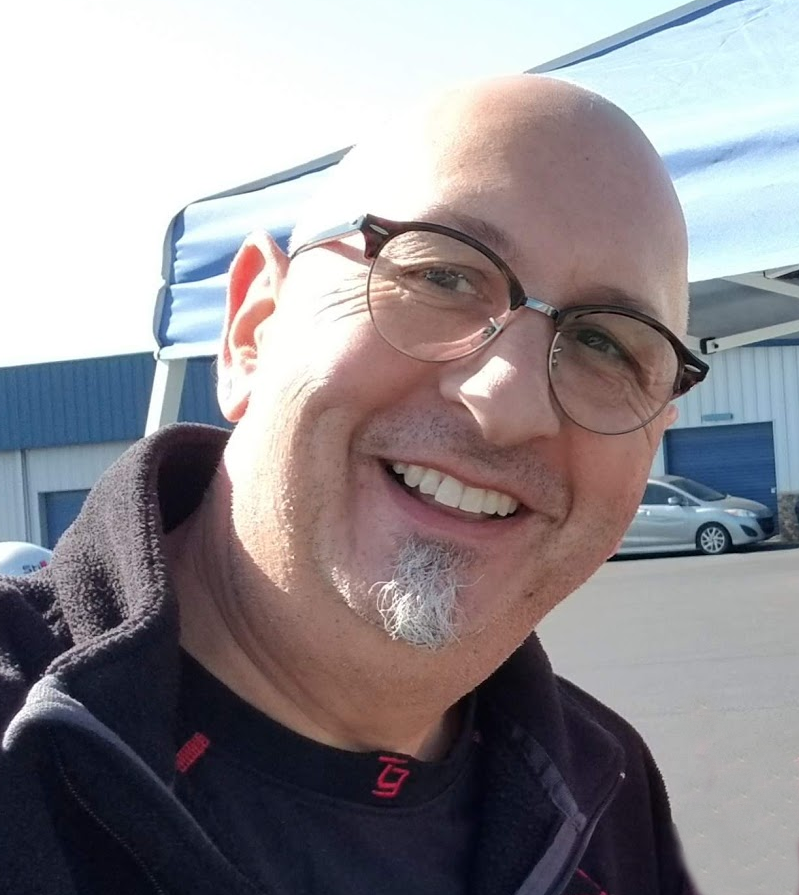
Just Track It was founded in March 2013 to bring affordable track days to car enthusiasts around the Southeastern US. Our mission is to get you on track in your car for the lowest possible price allowing you to enjoy your car at its performance limits.
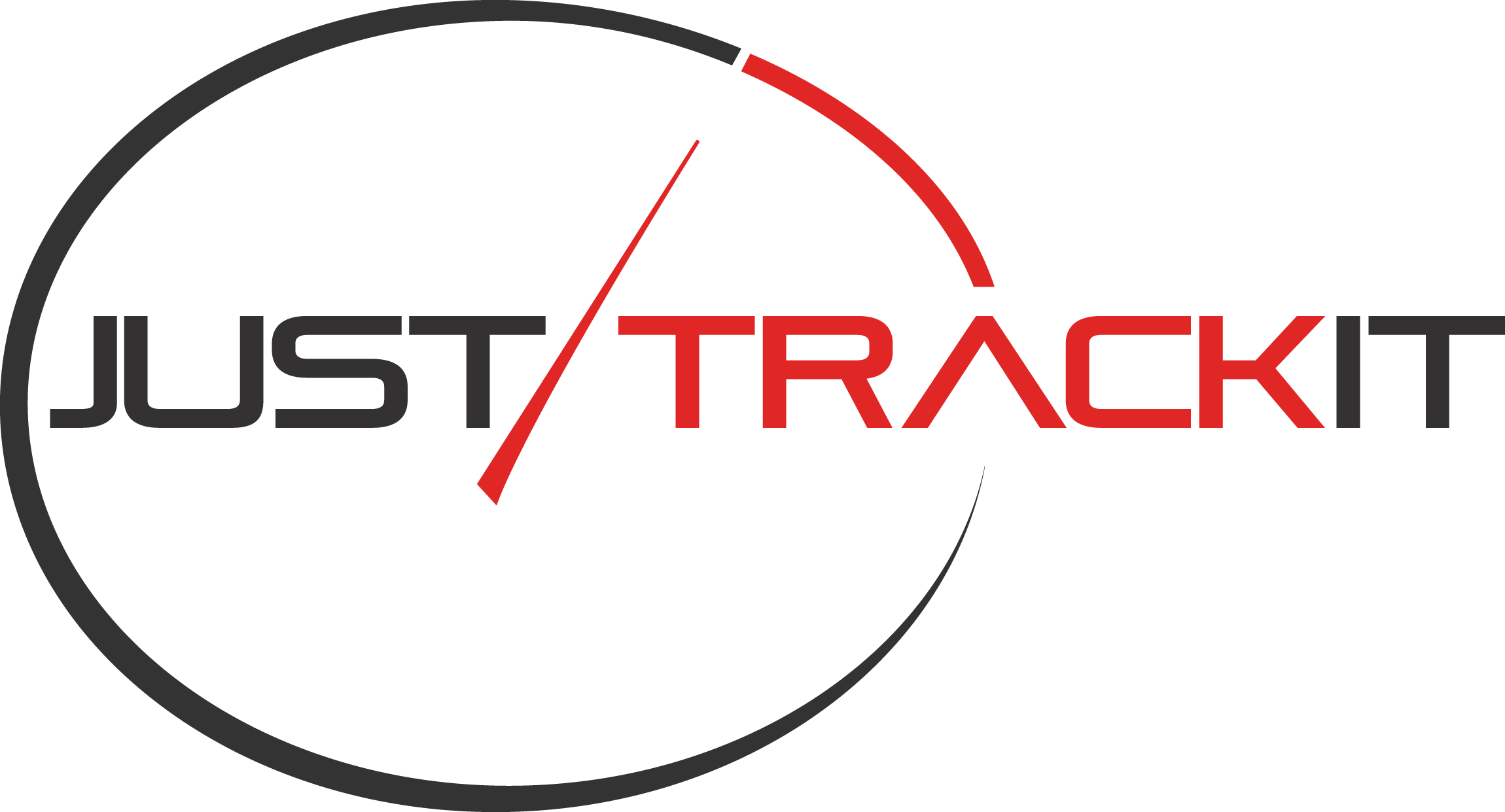
Contact: Nabil Abusharr at justtrackitllc@gmail.com | N/A | Visit Online!![]()
![]()
![]()
![]()
![]()
Notes
Who/When/Where is Just Track It!?
How do you learn more, and register for JTI events?
What is the Just Track It HPDE program like? What expectations should a new student have coming into the classroom for the first time?
How do you become a coach for JTI?
Track-Day Prep, Advice for 1st timers and more!
and much, much more!
Transcript
Crew Chief Brad: [00:00:00] Break Fix podcast is all about capturing the living history of people from all over the autos sphere, from wrench, turners, and racers to artists, authors, designers, and everything in between. Our goal is to inspire a new generation of Petrolhead that wonder, a. How did they get that job or become that person?
The Road to Success is paved by all of us because everyone has a story.
Just Track. It was founded in 2013 to bring affordable track days to car enthusiasts around the Southeastern us. Their mission is to get you on track in your car for the lowest possible price, allowing you to safely enjoy your car at its performance limits. That’s
Crew Chief Eric: right and just track its open track.
Events feature, extensive track time for all drivers of varying types of levels. From first timers to season racers. They provide instruction to novice drivers in the form of in-car coaching and classroom chalk talk sessions. And with us tonight is Nabi Buchar, [00:01:00] president of Just Track It to explain how their program works.
Crew Chief Brad: And as always, I’m your host Brad. And I’m Eric. So let’s roll.
Nabil Abusharr: Welcome
Crew Chief Eric: to Break Fix, Nabeel.
Nabil Abusharr: Oh, thank you very much. Appreciate you having me.
Crew Chief Eric: I love the name. Just track it. It kind of lines up with some of the things we say around the paddock. Just send it. Just send it. So it’s like, just track it. I love that.
So where did that come from? You know, tell us all about it.
Nabil Abusharr: Well, I, I wish I could claim the marketing genius of coming up with that name, but my good friend Brian, who started just track it with me. He’s the one who came up with the name and, you know, the thing is, is. There’s so many good names for H P D organizations and they’re all taken, so trying to find something that’s available that you can actually get a website domain kind of difficult.
Crew Chief Eric: Yeah,
Nabil Abusharr: no doubt. They said just track it, and we said That’s
Crew Chief Eric: it. 2013, you guys got started. What made you get started in the H P D E world?
Nabil Abusharr: [00:02:00] Actually it started before that, I’d been doing track events since 2004, a few years into it. 2006 I was, I had a Mazda R X a and that was my first car that actually was, I felt suitable for a track event and I couldn’t wait to get it out on track.
Hooked up with a group of people on the RX eight club internet forum. There were a bunch of people in the Southeast that also were very similar to me, kind of in the same age group, also just bought one of those cars. I said, you know what? Let us get together and take our cars out to the track. And so we signed up and did an event at Road Atlanta.
At the time, it was. Panels racing school. That was, oh wow. Like the onsite school, that road Atlanta. And they did open track days. So I started doing that, of course, got hopelessly addicted, started doing as many events as I could. And then this group of friends, we started renting out a little [00:03:00] racetrack, about an hour and a half outside of Atlanta, called Little Talladega.
Or Talladega Grand Prix, we’d do that. We’d, uh, get a group of 12 or 13 of us and you know, everybody would throw in 150 bucks or so, and we’d have this racetrack for the day. We continued doing that for a while. I met my friend who became my business partner, Brian, and he would bring his friends over to the track day.
I’d bring my friends over, and we just did that like three or four times a year. Leading up to 2013, he said, you know what? Why don’t we try to go to a bigger track? Let’s go and get one of the big tracks and do this with our friends there. Nice.
Crew Chief Eric: So Nabeel, you talked about starting out with an RX eight.
What are you driving now
Nabil Abusharr: still in the Mazda family? I have an NC MX five.
Crew Chief Eric: Oh man. Is that a downgrade from an RX eight or did you move up in the world?
Nabil Abusharr: You know, it’s, NC is basically an RX eight [00:04:00] suspension. With, uh, a non rotary motor and a little bit smaller, uh, vehicle, I mean mean an apple.
Crew Chief Eric: An apple is basically a pear, but you know,
Nabil Abusharr: you’re right, they’re both fruit.
Crew Chief Eric: Yeah. Right.
Nabil Abusharr: Um, I don’t think it was a downgrade. My RX eight was just a full street car and I was crazy. I mean, I used to do NASA time trials in that. And I’ll just put it on the ragged engine, then drive it to work on the next day with the leather seats and the bow sound system and the air conditioning and everything.
My car now is a former Skip Barber school car. Oh, so. It’s gutted enc caged. It’s been crashed heavily also, but fixed, whereas the RX eight had never been crashed. Uh, so yeah, my, my NC Miata is an, is an upgrade from the RX eight. In terms of a track cards, it’s pretty awesome. It’s got Penske shops and full cage [00:05:00] and good seats.
Crew Chief Eric: I, I’d like you to show me one Miata that hasn’t been crashed yet, but you know, hey, that’s a story for another day.
Crew Chief Brad: I wanna know if he was the reason it was crashed or if it was someone else.
Nabil Abusharr: Oh yeah. Well that’s a good question. So the car started out as its life as a Skip Barber school car, and a lot of those Skip crashed.
Skip Barber filed bankruptcy. They had a big school at Road Atlanta. They had a boneyard full of these crashed cars, and this was one of the last ones that was sold by the liquidation company. And my friend bought it ’cause he was going to fix it up for his son. Well, his son saw that, said, I’m not interested in that.
And he said, Nabil, you wanted, it’s got $2,000 worth of shocks on it. The cage is fine. The worst thing you do is make money just taking out the cages and selling the shocks. But I bought it from him at the price he paid. Friend of mine who runs a a Miata repair shop, he [00:06:00] fixed it up. We took it to a body shop, straightened it out parts from various cars, and it became my track car.
And then I let one of my champ car racing friends drive it and he put it into the tires and turned three.
You know, little Talladega is kind of a small place. You kind of felt really safe there, where we weren’t really afraid of any liabilities or anything like that. But going to a big track, it was a different story. We decided, well, the best way to do this is to start up an L L C, continue to do kind of the same field, the same flavor of events, and so in 2013, We started just track it.
We did our very first event as just track it at a brand new track at the time, Atlanta Motorsports Park. Okay. A M P A M P in Dawsonville, Georgia. So that’s how we started, basically me and a friend and our groups of, [00:07:00] in our group of friends that, uh, we took through the racetrack and grew it from there.
Crew Chief Eric: So would you say that a m p is your home track or is there something else that you guys call home nowadays, so many years later?
Nabil Abusharr: That’s a tough question. We’re Atlanta based. Actually, Brian moved on his day job, took him to Salt Lake City, so he couldn’t continue on. So it’s just me now. I live in the Atlanta area, so we like to consider the Atlanta tracks, our home tracks road. Atlanta was the first track I ever drove. I think it’s the most exciting.
Track in the area. So I absolutely love it. And I think we have five events there this year. Pretty much a primary track for us. A M P was our first track, and we do several weekends a year there as well. So that’s a home track. And then not too far away is Barbara Motorsports Bar. We do four weekends a year there now.
I’ve called that [00:08:00] a home track as well, and definitely love the people at all these tracks and you know, have really good connections there. So I would say our home tracks are a M P Road Atlanta and Barber Motorsports Park High class problem.
Crew Chief Eric: So, Nabeel, you mentioned a lot of tracks that you would consider home tracks.
Mm-hmm. But what’s your personal favorite track? Of all the ones you’ve been to over the years, it’s gotta be Road Atlanta. And what’s a bucket list track for you? Wains Lane. Well, yeah, you’re from the south for us. It’s like in our backyard, so we don’t think about it.
Nabil Abusharr: Yeah. Road America’s another. That’s on my list as well.
Yeah.
Crew Chief Eric: So being situated in the Southeast, do you find yourself also going into the Carolinas as well as Florida?
Nabil Abusharr: So we’ve been down to Florida, actually. We just got back, we were at the firm. Which is the Florida International Rally in Motorsports Park in Stark, Florida, not far from Gainesville and Jacksonville area.
We’ve done events at [00:09:00] Daytona. Daytona’s, not on our calendar right now, but our winter home would be February in Florida at the firm. We’ve done events at Carolina Motorsports Park, and we are returning to C M P this summer. So, We do Georgia, Alabama, South Carolina,
Crew Chief Eric: Florida, because you’re in the warmer area of the United States, I guess your schedule is a lot bigger than a lot of other organizations that we’re used to.
So are you running February to November? Are you running January to December? And what’s the schedule look like? I’m happy to say January through December. Very cool. That’s a, that’s a terrible thing to have as a problem. We’re,
Nabil Abusharr: we’re lucky. I mean, yes, it gets cold here, even though it’s the south, it does get cold, but there are some really nice days in January, believe it or not.
So, except if you live in Texas, but
Crew Chief Eric: you know, hey,
Nabil Abusharr: whatever.
Crew Chief Brad: So would you say Carolina Motorsports Park and like the Carolinas is as far north as you go?
Nabil Abusharr: [00:10:00] No, we’ve gone up to the National Corvette Museum Track N C M, but we haven’t in a couple of years. We’ve done a couple of events there in the past.
Really, our footprint, I would say is roughly Atlanta as the center go four hours in any direction, give or take. That is our footprint. The firm is about five and a half hours away, so a little bit out of that circle, but well worth the drive in February to get out of the cold and into the sun. In Florida,
Crew Chief Eric: there’s a different set of competitors down in the Southeast and we’re used to, and there’s some names that overlap, obviously.
What’s the big key differentiators that makes just track it that much better or cut a cut above
Nabil Abusharr: everybody else? Well, of course we’d like to think we’re the best. And I mean, I, I kind of can say that with a lot of confidence. And the reason for that is, like I mentioned, I started doing H P D events [00:11:00] in 2004.
I. I have driven with practically every organization that puts on events in the southeast. I, I don’t think I’m that smart a person, but you know, to be fully original and come up with everything myself. So what we have at just track it, we put together what I felt was the very best of every organization that I’ve driven with and tried to come up with the formula that matches what.
I think of as the ideal ultimate track day, and I think because I shamelessly take ideas from other people and put them into our formula, we end up with a pretty winning combination.
Crew Chief Eric: So that’s a great segue into talking about what your DE program is like. So let’s talk about all of these pieces. What are some of the expectations?
Someone new to just track it would have coming to an event for the first time,
Nabil Abusharr: new to just track it versus new to. [00:12:00] Actually doing HPDs
Crew Chief Eric: both. We’ll talk about your teaching program
Nabil Abusharr: as well. But first of all, I think we try to keep it simple. We’ve always said we have rules that make sense, not rules for the sake of having rules, and that goes through practically every aspect of joining and participating in an event.
Take for example, getting your car teched prior to an event. There are organizations out there that make you line your car up and you go through tech and they really don’t check anything. Honestly, if you brought your car into a tech line and said, Hey, Nabeel, is my car fit for being on track? I couldn’t stay for sure.
I mean, I’d have to put it up on lift nut and bolt it, check all the fluids, check everything. I can’t do that. So starting off with tech, we allow self tech, but we encourage people to take their car to a shop they trust, and [00:13:00] they’re responsible for their car being on track. All aspects of it. So you come into driver, check-in with your completed tech form.
We go through that tech form with you. We look at everything. Make sure that you checked everything. We’ve got all the contact information. I. That we need, and you’re checked in for your event. We have four run groups, typically based on driver experience rather than how fast your car is from novice through advanced.
And we have some guidelines in terms of where would you slot in while we allow you, when you register. To pick the appropriate group that you think is, uh, right for you. We do ask you to list all your prior experience, and I review all that prior to accepting a registration. So I get people that sign up for advanced and they’ve done, you know, 10 track [00:14:00] night in Americas.
Not naming names, but I mean that’s a pretty common intro to H P D E. Just because you were in advanced in, that does not make you advanced with us. We’re looking for 25 plus weekends, not, you know, I. Single half day events. You know, we have our guidelines and we review every registration so that we classify the driver appropriately, and then throughout the event we kind of monitor the run groups and see how things are going.
And if somebody needs to be bumped down or bumped up, we’re happy to do that. I am much more comfortable bumping somebody up. Than having to have the conversation of moving them down or on groups. I think it’s an easy conversation to have with somebody brand new to us to say, Hey, look, let’s start you in the Intermediate one Run group.
I know you’ve done 15. Events, let’s see how it works, and then maybe [00:15:00] do a check ride and up to the next run group. At the events, we have classroom training for novices. We have in-car instruction for novices. I know in the c o age there are some clubs that have gone to lead follow. Instruction. Right. I don’t fault anybody for that.
I just don’t think it’s very effective. So we don’t do that. And I also understand somebody may not be comfortable. I I understand that as well. So for those people that do not want to have an in-car instructor because. A fear of covid. Sometimes we can work around that and do a lead follow type scenario.
It it’s on a case by case basis, but for the most part, no. The instruction is in car. It’s in classroom. For covid, we require masks and social distancing and all the smart things to be socially responsible ourselves.
Crew Chief Eric: So it sounds like your owner operator and CI [00:16:00] there a little bit. Let’s get a little deeper into the DE program.
What’s the classroom curricula like? What are you guys teaching? What are you going over? What should a first time student expect when they go to a just tracking event?
Nabil Abusharr: I’m really pleased to say that I no longer have to wear the hat of chief driving instructor. I’ve got an awesome person to do that right now.
The classroom curriculum was developed by me, again, borrowing on stuff that I have seen going through various organizations over the years. When we don’t do classroom for advanced drivers, it’s just. The novice, it’s gonna start off with high level introduction to H P D E from, Hey, when you get in your car, here’s how you position your seat.
Here’s where you wanna be in relation to your steering wheel. It’s in relation to your pedals, what you should be able to see when you glance left and right in the mirror to what are the various flags, what do they [00:17:00] mean? Then through basic. D technique, terminology, turn in apex. Where your vision is, what an early apex is, late apex, where you break, where you downshift, where you accelerate, where you’re looking as you’re setting up for the next corner.
Some of the things that we would expect or ways that we would want you to approach a track, for example, before you can really worry about corner exit speed, first thing you have to do is. Learn the line and be able to know where you wanna place your car. And when you’re able to do that, then you start working on getting on the gas a little sooner and coming out of a corner better and lengthening the straight.
And then once you’re able to do that, then you start working on, well, you can maybe break a little bit deeper and you know, carry more speed into and through a corner. So we break the progression down that [00:18:00] way. Unfortunately that only happens in the novice run group and somebody who stays in novice for maybe five or six events, and then they’re on their own.
So no instructor, no classroom, and people plateau and you can’t figure out, Hey, you know, I, I got a lot better. But all of a sudden I’m stuck. And so this year we started to offer just a limited number of advanced coaching slots. So somebody that’s an intermediate level driver, they want a experienced senior instructor to jump in the car with them and help them find that elusive.
One, two or three seconds, or just figure out why do I seem to be going backwards right in my progression rather than forwards? And it’s easy. I mean, I, it happens to me and I’ve got a lot of experience, but sometimes you need somebody to jump in with you and say, Hey, Nabil. Stop turning in from the middle of the [00:19:00] track, use the full width.
I didn’t realize I was doing that. Excited that we’re able to do that now with our in-house team of instructors.
Crew Chief Brad: Yeah. That, that guy for me is
Nabil Abusharr: Eric.
Crew Chief Brad: He’s my, he’s my barometer. If I, if I’m doing something well, and usually if I need to. Improve a skill or, or, or whatever. I ask him for his brutally honest, constructive criticism.
Crew Chief Eric: And if I’m in the right seat, I’m usually telling him, send it. Just Just send it.
Nabil Abusharr: Yeah.
Crew Chief Brad: He’s the one who fixes the car anyway, so
Nabil Abusharr: a good friend of mine would ask me to jump in the car. With him to recalibrate his shitter. The
Crew Chief Eric: good old, we call it
Crew Chief Brad: the butt Dino.
Crew Chief Eric: Yeah. Yeah, the sphincter. That’s another, yeah.
Crew Chief Brad: People move up from beginner to intermediate. And then you see we’re saying they kind of stuck in limbo. So with this new feature that you are offering, is this gonna be a way to not only help them advance their skills, but also you’re gonna use it as like [00:20:00] checkout rides to move them up into advance and then.
Are you also using this as a funnel for finding the future instructors, uh, for your group?
Nabil Abusharr: Yeah. It’s not necessarily our method of progression. It’s really that advanced coaching is simply to help those people that you know, wanna do more than just have fun or they have fun by actually getting better and fine tuning their skills.
Not everybody seeks it out for those that want it. We’re able to offer it and not everybody wants it, and that’s fine. We do check rides to move somebody up and sometimes, you know, it’s a regular driver that may have been driving with us for several years and I see that they’re registered always.
Intermediate one and I, I think that they’re ready to move up to the next run group. You know, I might encourage them to say, Hey, let’s jump in the car with you and see if we can move you up, or let’s move you up at the end of the event [00:21:00] and see how you feel in that higher run group. We have four run groups, so we go novice, intermediate one, intermediate two.
Advanced intermediate. One is for somebody from six to 12 to 15 prior events or weekends, intermediate, two 15 to 25 ish. Weekends and advanced more than that, and everybody has a different learning speed. You know, some people will take a little bit longer and others seem to just take to it very naturally and are quick, you know, right off the bat.
Crew Chief Eric: Absolutely. So that makes me wonder then, are the coaches running in advance or are they allowed to run wherever they like? How does that work?
Nabil Abusharr: So our instructors, they get a special wristband, an instructor wristband, an instructor sticker on their car. They are allowed to go out in any run group at any time they want.
So
Crew Chief Eric: how many students on track and what is the student to instructor ratio [00:22:00] generally
Nabil Abusharr: one to one, instructor to student, every instructor. Gets one student
Crew Chief Eric: and the number of students on track, let’s say in beginner, is it a limited size, like maybe capped at like 10 or 15 or ba? Is it based on a ratio of cars per mile on the track?
Nabil Abusharr: It’s a little bit of a ratio that I stole from somebody else, but it’s adjusted based on the track itself. The number is 17 cars per mile. Okay as a basis, but in the novice run group where there isn’t as much passing or there are fewer passing zones and depending on the track as to how many passing zones there are, we’re going to adjust that number downwards.
So for example, a track like Road Atlanta, we might have 28 people in that novice run group while attract like barber. Where there are five [00:23:00] separate passing zones, the track is very wide everywhere. It’s really easy to get people by. The passing zones are relatively long as well as plentiful. You know, we can up that up to, you know, 36 people and it doesn’t feel crowded.
So, It varies by track.
Crew Chief Eric: So since we touched on coaching a little bit, and Brad and I are both coaches, so we’re always interested in this side of the equation too. Let’s talk about, just track its coaching system and, and the model and, and let’s talk about the expectations there as a coach coming to A J T I event for the first time,
Nabil Abusharr: if you’ve never coached with us, the first thing that we’re looking for is a certification.
That certification can be B M W C C A has a good program. The Porsche b C A clubs have a good program. NASA has a decent program as well, so we’ll accept a coaching certification from other organizations that we know are committed. To [00:24:00] H P D E and the instruction have that focus as as part of their mantra as well.
Crew Chief Eric: So
Nabil Abusharr: does
Crew Chief Eric: that include M S F?
Nabil Abusharr: Yeah, so it does include M Ss F level two. Level one is a nice to have, but by itself it doesn’t really mean much. Level two is definitely, you know, a, a certification that holds water aside from a certification because we are starting to see in the past year a trend where some organizations are pretty quick to certify people as instructors, and this is because it’s tough to find good quality instructors.
We’re seeing people that are getting certified that really are not ready. They don’t have the seat time, they don’t have the experience. I’ve added another qualifier in there besides the certification. We’d like to see an appropriate level of experience as an advanced driver,
Crew Chief Eric: whether that be autocross, [00:25:00] whether that be club racing time, trials de whatever.
And then it’s It’s your full resume, right? Or does that have to be specifically tracked?
Nabil Abusharr: Not so much autocross just because, I mean, it’s, it’s a different set of skills.
Crew Chief Eric: Yes, absolutely.
Nabil Abusharr: Um, but club racing, track days, et cetera, we just wanna see that you have enough seat time where you are attuned to what the car is doing under you are able to feel it, anticipate it, and keep your student out of danger if you don’t have the seat time.
A, you don’t have awareness of what’s going on around you, corner stations, other cars, traffic management, as well as what’s gonna happen the next time we go through this corner. If we do this again, if you’re an experienced coach, you kind of see things before they happen. You know that we got away with that one, or if we continue doing this and taking it to the next level, we’re going off and it could be bad.
So you need seat time for [00:26:00] that. So that’s an important qualifier. Absolutely. Also, what we’re looking for in a coach is somebody who’s enthusiastic and positive and can represent this hobby to somebody who’s brand new. People are afraid to take their car to the track, so you need somebody that’s not all crotchety yelling it.
People, but it’s encouraging and supportive and friendly and can communicate, uh, with their students.
Crew Chief Eric: Nabeel, you talked about MSF two and, and you alluded to the fact that there’s an instructor training program within just track it. So do you wanna expand upon that a little bit?
Nabil Abusharr: Oh yeah. I’d love to. Like a lot of other organizations, initially we struggled finding quality instructors.
There just weren’t very many and those that existed, well, they could choose pretty much any organization they wanted to and instruct with them. So if you’re the new guy coming up, they don’t know you. It’s hard to get good quality instructors. I never [00:27:00] wanted to compromise. So while I saw other groups taking experienced drivers, Putting them as instructors in novice cars.
I never wanted to do that. I wanted to make sure there was a certified trained person. When we couldn’t find enough, I said, well, we’ll grow our own. And so put together an instructor training program that was. A two day program to take somebody that was sufficiently experienced and put them through the program and show them how to communicate with a student and help them progress through being a novice safely.
Last year or year before MSF started becoming a little bit more well-known, and they started off with the MSF one. Certification, which is pretty easy to get. You really don’t have to be an experienced driver to pass that certification in any way. But then MSF two came along and it just so happened my chief driving instructor was in [00:28:00] touch with the folks at the Motorsports Safety Foundation, and he submitted our curriculum to them for review.
They loved it. So we went through several iterations of back and forth of them asking questions, and we got. Approved to be a MSF two certification center back in January. We did a class at Barbara. It was, I think our third MSF two class. The first two we did last year. We went through our. Core instructor team and offered them the opportunity to get that MSF two certification.
Tried to cover our charity, starting at home type, uh, approach and try to cover our people and give them priority. And then in January we opened it up. We actually had people come from other regions to attend our class and we also had representatives Eric Mayer from. Motorsports Safety Foundation came actually [00:29:00] a sat in on the program and participated it and actually brought some of his instructors to be certified by us, which is pretty awesome.
We really are proud that we have MSF two certification. We plan on doing two more certifications this year. One will be at Road Atlanta in July, and then the third one, I forget when we’re setting it, it might be, uh, Roebling Road in November. Yeah, we’ve got a fantastic instructor program. It’s been rated and, uh, we’ve had some really excellent reviews by, uh, Eric Mayer and Motorsports Safety Foundation folks, as well as people that have gone through other certification programs in the past and wanted to get their M S F two and said it’s the best program they’ve ever been in.
So I’m proud of my chief driving instructor, Levi Barnes. For getting us there.
Crew Chief Brad: How does someone register for a J T I event? Where do we find you, you know, where do [00:30:00] we figure out where you’re going and, and, uh, how to sign up?
Nabil Abusharr: There are several places. First is, of course, just track it.net, our website and our, our calendar page there, we use club registration.net as our.
Platform for managing registration, you’d find us there. And then of course, if there’s a particular track that you’re interested in, whether it’s Barber or Road Atlanta, you can always go to their website and see what events are coming up.
Crew Chief Brad: Uh, so you talked about you’ve got four run groups. Uh, so how does that break down to.
Amount of track time, you’re getting session length and stuff like that. I think the standard we’ve seen is usually 20 to 25 minutes, depending on the amount of run groups. Uh, why don’t you talk a little bit about the, what you’re getting for your dollar with just track it
Nabil Abusharr: in general. You can count on about two hours worth of seat time per day.
And that works out to be 5 25 minute sessions. That’s our typical schedule for every run group. So that’s [00:31:00] a pretty good amount of time. When we first started out, we didn’t have as many participants and so we used to have three run groups. What I used to see is that people would pack up at two o’clock and leave ’cause they, that was about all they had.
Brake sport tires for mental energy for, and it felt like such a waste. I’d be going around the paddock saying, guys, it’s your run group. Get out on track. What’s wrong with you? So having four run groups really does a couple of things for us. One, I would say most important because of my experience as an instructor, it gives you the ability to set up your run groups so that you have novice.
Break instructor, break novice again so that you have time to get into your student’s car. Brief them before the session. End the session, debrief, discuss, not rush, be able to go and get into your car and do your session. In the meantime, the other [00:32:00] intermediate run groups are on either side of the novice and, uh, advanced instructors run in advanced.
It gives a lot more time and it’s a lot more relaxed. It also is nice when you actually have. You know, an hours breather in between your next session.
Crew Chief Eric: And how
Nabil Abusharr: many classroom sessions do the beginners have? Typically four classroom sessions over the course of the weekend, so two on Saturday, two on Sunday.
Sometimes it might just end up being one on Sunday. I.
Crew Chief Eric: And that’s all included in the price. And obviously we all kind of understand at this point that the tracks really dictate the cost to go play. But what’s the average weekend cost look like for a just track event?
Nabil Abusharr: Uh, it depends on the track. So least expensive weekend is 2 99, most expensive is five 50.
That’s actually really good. Yeah. I mean, you know. We want to be a high value. We want to be competitively [00:33:00] priced and by competitively, I mean I want to be no more than anybody else, but less than most. I. Without sacrificing amount of runtime, the quality of the event, the quality of the staff, you know, our standards are gonna be maintained at the same high level.
Crew Chief Eric: Yeah,
Nabil Abusharr: we started doing this for fund. We didn’t do this to pay a mortgage. We have a very lean organization, so I don’t have a lot of staff. Keep it simple. We do the things that we are good at and avoid the things we’re not good at.
Crew Chief Eric: So we talked about a lot of things in the last, you know, 30 minutes or so.
We’ve talked about, you know, tech, we’ve talked about the classroom, we’ve talked about the run sessions, the price, things like that. But you know, the number one thing, At the back of everybody’s mind, and you actually hit on it earlier, is safety. So let’s kind of touch on that a little bit. Maybe some of the things that you guys do to ensure safety, but also let’s delve into the [00:34:00] conversation around track insurance, kind of your feelings on that.
Do you recommend it? Do you have a recommended partner? Is it part of your registration process to supply track insurance? Things like that.
Nabil Abusharr: So safety, I mean, it’s all funny games until someone loses an eye, isn’t it? It’s the old saying,
Crew Chief Eric: right?
Nabil Abusharr: Yeah. Safety. I, I like to start off a driver’s meeting. Say, look, you know, we have two main goals.
One, have fun and two, be safe. That’s why we’re here. With regards to safety. We do not skimp on the number of corner workers, so we make sure every corner is staffed. We just emphasize it all over the place. The quality of our instructors, the classification of drivers into the right run groups, those are all factors of safety.
What vehicles are allowed and not allowed. Those lead to safety as well in terms of convertible rules and so on. You know, we’re, we’re doing all the things [00:35:00] that make sense in terms of trying to provide as safe and environment as possible when it comes to track insurance. While that doesn’t really do much to enhance the safety of anything, it does help in the unfortunate case where you have an off track excursion that ends in impact with a tire barrier or.
Concrete or armco? It depends. I don’t tell people that they need to do it or that they should do it. I think everybody needs to just take stock of what vehicle are they bringing to the track? Is it something that you can walk away from and not feel too devastated financially because you crashed your car?
And if that’s not the case, then by all means buy track insurance. The first. People that we talked to about getting listed was Lockton. So, you know, Lockton is, uh, somebody that I always refer [00:36:00] people to is if you want to buy track insurance, they’re a serious player in that market. Haggerty has started to do that, and there are a few other sources.
In fact when you register for an event with club registration, they have a insurance company that they, you have to be careful with insurance ’cause you can’t rebate or anything like that. But they have like some banner ads for a provider of track to insurance that you know, does a good job as well. So, I encourage people to shop around at call and get a quote, and if you are interested in doing a lot of events, the best value is to buy a multi-event policy because it’s like going to the grocery store and getting the family pack of ground beef instead of, you know.
One pound at a time. Exactly. So
Crew Chief Eric: definitely go large. Do you see a lot of newbies at just track events with [00:37:00] electric cars yet? And what do you think of the electric car revolution that’s coming?
Nabil Abusharr: Not a lot. I don’t see a lot of electric cars. We’ve seen a few Teslas. That’s about it. The only thing that they’re missing is the sound.
You know, I want to hear the car, but I guess we’ll get used to that. I mean, the performance of an electric car can be astounding. You know, it’s coming, we’ll see it, but what I’m afraid of is missing the auditory excitement that we get from an uncorked. Four cylinder Mazda Miata.
Crew Chief Eric: Do you think some of the hesitance of, of these, uh, electric cars showing up more and more at the track is because there’s no charging infrastructure there yet for those types of vehicles?
Nabil Abusharr: Yeah, well, there are some tracks that we go to that there’s charging nearby, like Robing Road in Savannah. The Savannah airport is 10 50 minutes from the track and they have Tesla supercharger there. I think one of the things right now from what I’ve seen is that [00:38:00] the electric cars will not run a full session in full power mode.
So, you know, they go out there, they run two laps, and then it’s like a time attack car that’s got. Not enough cooling and too much performance and therefore can stay out there and, uh, finish out a session. So we’re seeing that. And then of course, the range aspect. There isn’t a quick charger near Road Atlanta or Barber, for example.
So,
Crew Chief Eric: so let me ask you this, you know, looking back over your 20 plus years in the de world, what’s some advice you would give to a first timer or somebody that’s just still thinking about coming out to an event?
Nabil Abusharr: First thing, if you’ve never been to one, Come out and check it out. You don’t have to register.
Just come out and stop by the registration table. Introduce yourself. Maybe get a ride on track to check it out. Talk to us in person if you can make it out to an event. Hey, here’s my number. Call me and, uh, you know, I’ll answer your questions. We’ll [00:39:00] help you get the answers that you’re looking for about this hobby.
The second thing I would say is, You don’t need a special car, don’t need to have a nine 11 g T three, or, um, you know, a sports car, if you will. You can bring almost anything out, I would say. I don’t want to see SUVs and pickup trucks. The track just because, you know, most of them are so heavy that while they can go fast, stopping is a problem after a couple of laps or maybe even after a couple of corners.
And I don’t like to see big, heavy vehicles on track with lightweight, smaller vehicles like, you know, MX fives and and so on. So you don’t need a special car, but it needs to be in good mechanical condition. No leaks, no freight belts, no worn tires. New brakes, new brake fluids, you know, track quality brake pads, all the safety stuff, uh, should be working properly as well.
And then [00:40:00] finally, the only other thing you need is in current SA rated helmet. And if you don’t have one, we have ’em available for rent at every event too. So if you’re just trying it out, maybe you don’t wanna buy a helmet, just rent one. And then you say, okay, I see myself doing this. Lemme go ahead and invest and get a good helmet.
Crew Chief Eric: So earlier we talked about the NC Miata that you have and things like that, and I, it made me wonder, What was your biggest learning moment on the track? Something you could, again, bestow to a newcomer to the de world. You know, maybe that biggest oops moment where you really, it was a turning point for you, having a hard
Nabil Abusharr: time thinking of what one singular thing would’ve been.
Crew Chief Eric: There’s that many, is that what you’re saying?
Nabil Abusharr: Well,
Crew Chief Eric: yes,
Nabil Abusharr: I have found the edge. I’ve gone over the edge and I’m still here. So I’ve come back from beyond the edge, but every time I go over the edge I learn something new and I’ve been over that edge so many times that it, [00:41:00] it doesn’t really happen too much anymore.
I think it’s important to just to remember, you know, we’re doing this for fun. Stay within the limits. There’s really nothing to prove. The biggest notoriety you’re going to get is by spectacularly wiping out. That’s not the notoriety you want. Absolutely. Nobody cares how good you are or how fast you are.
We’re not gonna get any kind of driving contract, so just have fun and be careful and do it again next week, next month, or however often you’re able to.
Crew Chief Eric: That’s right. Listeners. H B D E is not as cool as autocross because we don’t get $5 trophies at the end. So, you know, keep that in mind. Right,
Nabil Abusharr: exactly. No trophies.
Crew Chief Eric: What other things about just track it, do we not know about that are maybe special to you guys that you wanna share?
Nabil Abusharr: You know, one of the things that I’m really proud of is that we are friendly, we’re welcoming, [00:42:00] we’re inclusive. You see a lot of. Husband, wife, father, son, whole families that come out and whether they’re all driving.
We’re just hanging out with each other at the track. It’s a very inclusive family type atmosphere, and my team is super friendly and welcoming, and we’ve just had some fantastic relationships with the people that drive with us on a regular basis and those that are new to us that we just wanna welcome them in and introduce them to this hobby and make them feel like they’re a part of this family.
It’s not standoffish, it’s not clickish, it’s not, well, you don’t have X, Y, Z card. Therefore, I’m not interested in talking to you and I will not give you a point buy on the track. I think that flavor is something that I’m really happy about and I love to see. Last weekend, one of our regular [00:43:00] drivers, he’s been coming with his son for the past couple of years while his 16 year old daughter.
Did her first track event in her mom’s B M W X one. Nice. At the firm, and it was so cool to see her gain speed through the weekend, coming through the turn 10 and turn one complex at the firm. And it was just like, that is so awesome. You know, she’s gonna go and. Talk to her friends at school about what an incredible weekend she had and her dad today signed her up for three more events that are upcoming.
Well, there you go. It’s just, it’s awesome.
Crew Chief Eric: Well, since we’re giving shout outs and telling stories, is there anybody that you wanna thank or any sponsors or anybody you wanna mention? I.
Nabil Abusharr: Oh yeah, absolutely. We have phenomenal sponsors at Just Track It. A lot of them. In fact, our three primary sponsors are Course Accrue.
Course Accrue is based out of Birmingham, and they show up at all of our track events. [00:44:00] And what’s cool about them is if it’s track site service, your brakes start fading. You need your brakes, blood, or your patch changed, or your tires rotated or anything like that, they’re there. So your weekend does not end.
They also have a couple of arrive and drive cars, like some Cayman GTSs and a Mini Cooper. They can save your weekend and they’re on site for other groups as well, but they’re a sponsor of just track it. Another sponsor is gas Trailers. Or Gilreath Auto Sales. They’re out of Tennessee area and they’re a trailer dealer.
So if you want a Hallmark trailer or you know, other name brand, not the, the cheap South Georgia trailers. I don’t know if you guys are familiar with South Georgia trailer companies. They’re notorious where, you know, you take a look underneath and where something should have gone through a cross member.
Uh, the, the bolt is just into the air. So they, they deal with [00:45:00] quality trailers and their deal is 10% off of dealer cost. You can customize a trailer and they, they’re one of our sponsors. And then the third sponsor, E three storage. It’s like a car storage place slash d i y. Club, you can store your car there, your trailer there.
They have some lifts that you can work on your car. There it is the home of just track it and the just track it trailer. They have locations in Alpharetta, Georgia, Marietta, Georgia, Tucker, Georgia, Charlotte, North Carolina, coming soon to potentially Hilton Head area, South Carolina and other cities as they continue to grow.
So those are our main sponsors. Our photography company, Motorsport Media, run by a really, really talented photographer that covers a lot of the SSA teams, photograph all sorts of professional motorsports. And then finally, track Day Tire, uh, is a [00:46:00] source for Hoosier and uh, Toyo Race tires. Through their program and you can find the discount code on just track it.net.
Under track day Tire. You can get discounts. I think it’s like 10% off of uh, Hoosier Tires. And if you know Hoosier, they’re not discounted anywhere. So it’s the absolute best price you’re gonna find on a Hoosier Tire, like a a seven or R seven race compound or Toyo rr. And you can save money plus flat rate chipping.
The best place to get that, uh, you know, the top tires for, for your track car.
Crew Chief Eric: The purple crack as the S C C A guys car. Purple crack.
Nabil Abusharr: Yeah. Yeah. I didn’t wanna say that.
Crew Chief Eric: It’s all good. They’re addictive. So, Nabeel, I can’t thank you enough for coming on the show. This has actually been really informative.
It’s good to get to know an organization outside of our normal area here in the D M V. So learning more about the Southeast and our neighbors in the warmer climate has been fantastic. So, [00:47:00] For those of you listening, if you want more details on the, just track it and their program, as Nabeel said, visit, just track it.net or follow them on Facebook and Instagram at Just track it, llc.
Or use their online Contact US forum to get in touch with Nabeel directly. So again, thank you so much for coming on the show. This has been awesome.
Nabil Abusharr: Thank you. It’s been fun.
Crew Chief Eric: That’s right, listeners, if you enjoyed this episode, be sure to check out our Patreon for a follow on pitstop Mini. So check that out on www.patreon.com/gt motorsports and get access to all sorts of behind the scenes content from this episode and more.
Crew Chief Brad: If you like what you’ve heard and want to learn more about G T M, be sure to check us out on www.gt motorsports.org.
You can also find us on Instagram at Grand Tour Motorsports. Also, if you want to get involved or have suggestions for future [00:48:00] shows, you can call or text us at (202) 630-1770 or send us an email at Crew chief@gtmotorsports.org. We’d love to hear from you.
Crew Chief Eric: Hey everybody, crew Chief Eric here. We really hope you enjoyed this episode of Break Fix, and we wanted to remind you that G T M remains a no annual fees organization, and our goal is to continue to bring you quality episodes like this one at no charge.
As a loyal listener, please consider subscribing to our Patreon for bonus and behind the scenes content, extra goodies and G T M swag. For as little as $2 and 50 cents a month, you can keep our developers, writers, editors, casters, and other volunteers fed on their strict diet of fig Newton’s, gummy bears, and monster.
Consider signing up for Patreon today at www.patreon.com/gt motorsports. And remember, without fans, supporters, and members like you, none of this would be [00:49:00] possible.
Highlights
Skip ahead if you must… Here’s the highlights from this episode you might be most interested in and their corresponding time stamps.
- 00:00 Introduction to Break Fix Podcast
- 00:28 Founding of Just Track It
- 01:07 Nabil Abusharr’s Journey
- 01:54 The Evolution of Just Track It
- 03:43 Nabil’s Current Track Car
- 06:31 Expansion and Home Tracks
- 10:39 Just Track It’s Unique Approach
- 11:44 Driver Education Program
- 18:29 Advanced Coaching and Progression
- 21:37 Instructor and Student Dynamics
- 23:44 Instructor Certification Programs
- 24:49 Experience and Qualities of a Good Coach
- 26:26 Just Track It Instructor Training Program
- 27:37 MSF Certification and Expansion
- 29:54 Event Registration and Track Time
- 33:45 Safety Measures and Track Insurance
- 36:56 Electric Cars on the Track
- 38:26 Advice for First-Timers
- 41:54 Community and Inclusivity at Just Track It
- 43:45 Sponsors and Support
- 46:45 Conclusion and Contact Information
Learn More
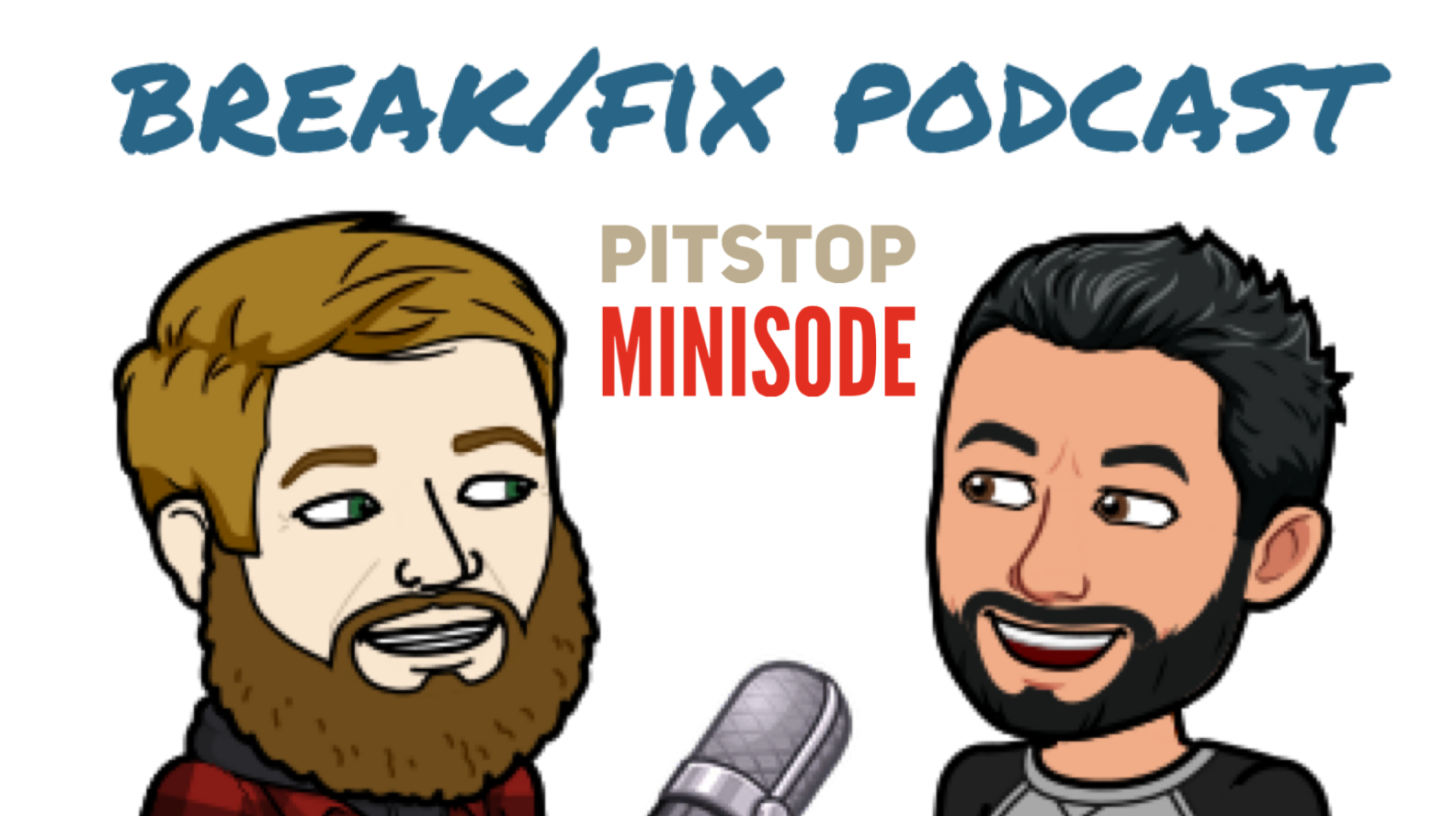 Bonus content available as a #PITSTOP mini-sode.
Bonus content available as a #PITSTOP mini-sode.Consider becoming a GTM Patreon Supporter and get behind the scenes content and schwag!
Do you like what you've seen, heard and read? - Don't forget, GTM is fueled by volunteers and remains a no-annual-fee organization, but we still need help to pay to keep the lights on... For as little as $2.50/month you can help us keep the momentum going so we can continue to record, write, edit and broadcast your favorite content. Support GTM today! or make a One Time Donation.

If you enjoyed this episode, please go to Apple Podcasts and leave us a review. That would help us beat the algorithms and help spread the enthusiasm to others by way of Break/Fix and GTM. Subscribe to Break/Fix using your favorite Podcast App:
 |  |  |
There’s more to this story…
Some stories are just too good for the main episode… Check out this Behind the Scenes Pit Stop Minisode! Available exclusively on our Patreon.
2021 Just Track It! Schedule
January 16-17 – Barber Motorsports Park February 20-21 – The Firm March 5 – Road Atlanta March 27-28 – Roebling Road Raceway April 24-25 – Atlanta Motorsports Park June 5-6 – Barber Motorsports Park June 11 – Road Atlanta | July 9-11 – Road Atlanta August 7-8 – Carolina Motorsports Park August 21-22 – Barber Motorsports Park Sept 10 – Road Atlanta October 2-3 – Atlanta Motorsports Park November 6-7 – Roebling Road Raceway November 20-21 – Barber Motorsports Park December 3 – Road Atlanta |
This content has been brought to you in-part by sponsorship through...
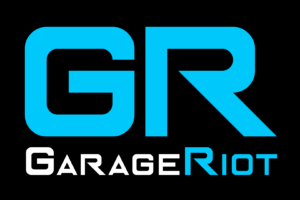 | 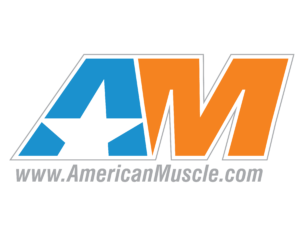 | 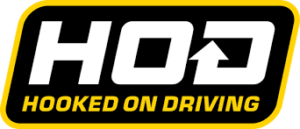 |  |



